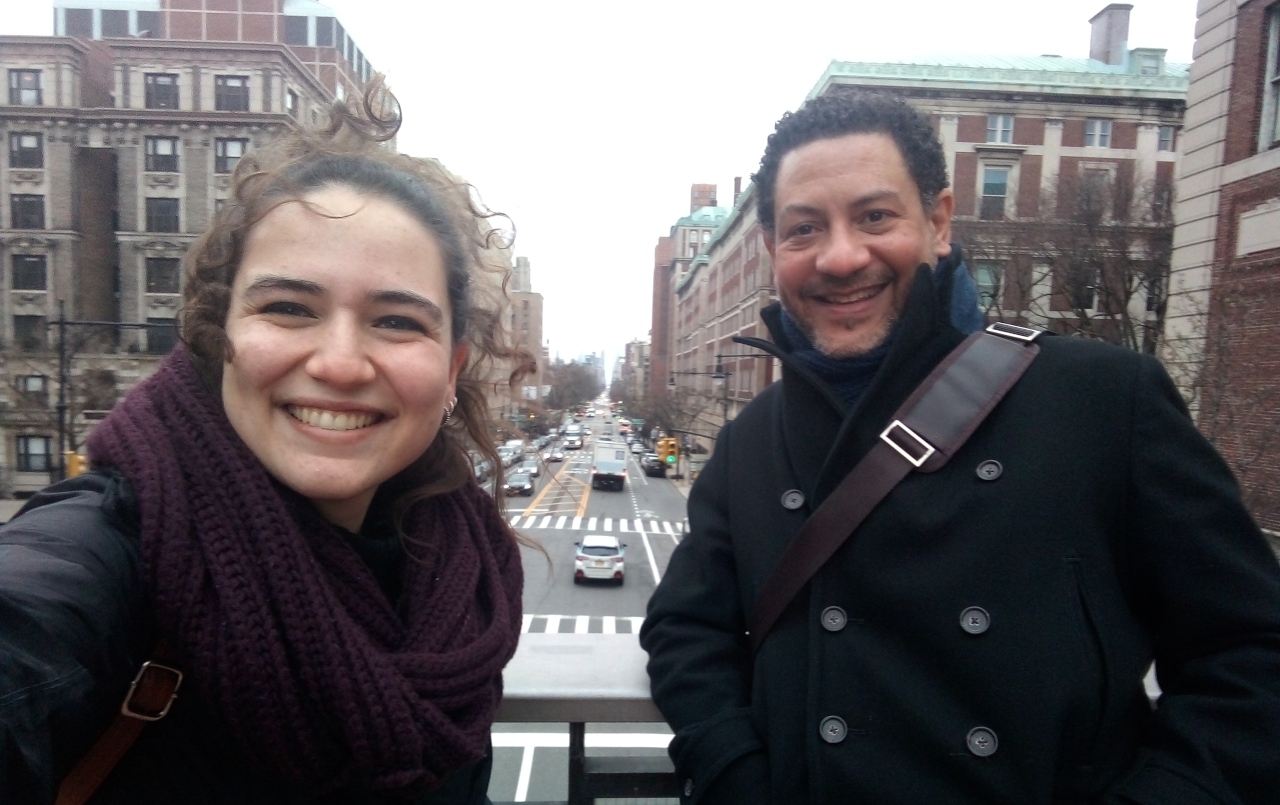Travel Grant Report by Aya Adra
07.01.2020, by Tina Keil in grant report
Max Planck Institute for Research, Bonn; Research visit to Professor Colin Leach at the University of Columbia, New York

Supported by a European Association of Social Psychology travel grant, I got the wonderful opportunity to visit Professor Colin Leach at Barnard College, University of Columbia in the city of New York, from August until December 2019. The end of this research stay marked the beginning of my third year as a PhD student at the Max Planck Institute for Research on Collective Goods in Bonn, Germany. I am generally interested in the dynamics of social justice and change, and have been working on intergroup relations and collective action. One of my main doctoral projects has been focused on previously unexplored determinants of solidarity by advantaged group members. I have carried out this research in the context of racial relations in the United States, by examining White individuals’ willingness to participate in collective action in support of Black movements for racial equality. During my first year as a PhD student, I very often came across, benefited from, and built on Colin’s research. This included his many conceptual and empirical contributions to the collective action and group-based emotions literature.
During a short visit to New York earlier in the year, I had the pleasure of meeting Colin and discussing my projects with him. During our brief conversation, he offered me insights regarding both the technicalities of how to best handle my datasets and more broadly how to pursue my line of reasoning and which literature that would best compliment it. The very limited time I got to spend with him in January was immensely helpful, and I was therefore delighted to receive an invitation from him to be a visiting scholar for five months.
My time in New York was extremely beneficial to my academic and, more broadly, my intellectual development. For one, Colin and I initiated a project together, at one of the many intersections of our research interests. Extending previous work of his, in which he and his co-authors investigated White and Black individuals’ reactions to images of Black Lives Matter protesters, we will be running a series of studies to explore the potential effect of the social composition of protesters. Specifically, we are interested in Black and White participants' reactions to images of (1) Black only protesters, (2) White only protesters, (3) mixed protesters. We expect a range of emotional reactions, including anger, empowerment, guilt, and others, to critically depend on the interaction between participants’ race and the target protesters’ racial composition. We also expect to find consequences on collective action related variables, including efficacy beliefs, and the tendency to join or oppose protests. The findings of these studies will therefore contribute to our social psychological understanding of reactions to protest images and their downstream emotional, cognitive, and motivational consequences. Besides these conceptual implications, this could potentially offer practical recommendations to activists and organizers aiming to increase support for movements centring racial equality.
Alongside working on this specific project, my conversations with Colin week after week offered me invaluable perspective, and were oftentimes paradigm shifting. I got to pick his brain on politics and intergroup dynamics in the U.S. and outside of it, and the extent to which and ways in which social psychological inquiry can explain social stagnation and inform social change. I also got many chances to sit with other wonderful researchers and activists at Columbia, through regular seminars and arranged meetings. I genuinely believe that each and every one of these interactions has, in one way or another, enriched my understanding of the work I am carrying out, and the larger context within which it falls. I would argue that the same applies to having lived in Harlem, and continuously commuted between New York’s lovely boroughs.
I am very grateful to have had this opportunity, and am certain that its repercussions will go far beyond my return to Germany.